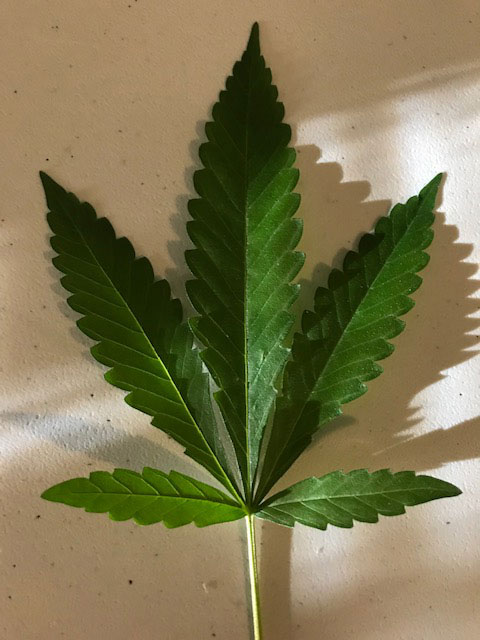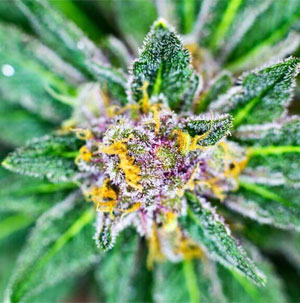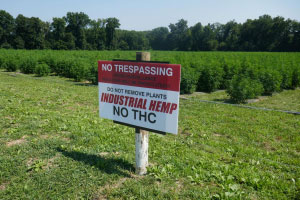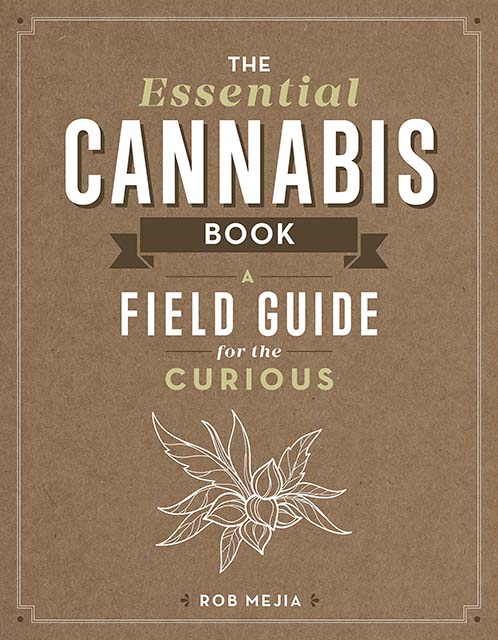Education
 Differences between Cannabis and Hemp
Differences between Cannabis and Hemp
- Hemp is a variety of cannabis plant that is grown for fiber, seed, cannabinoids or food that contains less than .3% Delta 9 THC
- Hemp grown for fiber or seed is usually grown close together and will look like stalks of corn
- Hemp grown to produce cannabinoids will usually be grown farther apart more similar to how cannabis is grown
What is the ECS, THC, CBD, Delta 8
- The Endocannabinoid System is the body’s largest network of neurotransmitters as well as the only one that allows signals to be sent from both the body and brain. The ECS is believed to be responsible for keeping the body’s balance or homeostasis as it regulates our sleeping and eating habits. The parts of the ECS that interact with cannabis are known as the CB1 and CB2 receptors which are located all over the body.
- THC is an acronym for Delta-9 Tetrahydrocannabinol which, when consumed, functions in the brain similar to the endogenous neurotransmitter Anandamide that was discovered by Israeli scientist Raphael Mechoulam. Like Anandamide, THC binds to the CB1 receptors in the brain, but unlike the naturally occurring Anandamide, it creates psychoactive effects via interaction with the body’s endocannabinoid system
- CBD is an acronym for Cannabidiol, one of the most abundant cannabinoids. It is non-psychoactive, meaning it does not create the high of THC. CBD entered the public awareness with the story of Charlotte Figi, a young girl who suffered from frequent seizures and whose condition improved considerably when her parents were able to give her CBD tinctures. CBD has continued to rise in popularity over the years due to the legalization of hemp cultivation in the 2018 Farm Bill, allowing it to be sold almost anywhere. However due to prohibition, there is currently not enough research to know all of CBD's uses at this time.
- Delta 8 THC is relatively new in the hemp/cannabis industry as it occurs in very low concentrations in cannabis and hemp plants. But this variant of Delta 9 THC has one less bond between atoms that researchers have found imparts some of the benefits of Delta 9 THC without as much psychoactivity or addictive properties. More research is needed to understand this rare cannabinoid.
 The colonists at Jamestown were required to grow hemp by the British in 1619; each
landowner had to cultivate 100 hemp plants for export.
The colonists at Jamestown were required to grow hemp by the British in 1619; each
landowner had to cultivate 100 hemp plants for export.- In 1850 cannabis was added to the U.S Pharmacopeia
- Cannabis Tinctures were commonly available at pharmacies prior to the 20th century and were produced by companies like Eli Lilly, Parke-Davis, and Squibb.
- Harry Anslinger led the post Great Depression movement to criminalize cannabis, associating its use with Mexican immigrants and Black jazz musicians to stoke racial fear, leading to the Marijuana Tax Act of 1937 which effectively ended the legal growth of cannabis in the U.S. due to the stringent penalties it enforced.
- During World War II farmers were asked to grow hemp to use its fibers for materials like rope, clothes, and canvas in the war effort.
- In 1970, Congress, under President Richard Nixon, passed the Controlled Substances Act, which created five schedules of classification based on substances' potential for medical use as well as its potential to be abused. Marijuana was placed in Schedule I meaning it had “no currently accepted medical use and a high potential for abuse.”
- Richard Nixon created the Shafer Commission in 1972 to study marijuana and prove its danger. The commission found the opposite; that marijuana criminalization is more damaging than the drug itself and that it should be lowered to Schedule III of the CSA. The findings were dismissed and ignored.
- In part, because of changing public opinion, California was the first stage to legalize
Medical cannabis and today 36 other states have provisions for medical use cannabis.
- Colorado and Washington became the first states to legalize Adult Use cannabis in 2012, though Colorado was the first state to put a program in place.
- Today, Colorado and Washington are joined by 16 other states -including New Jersey- that allow Adult Use cannabis.
- Several states including, Missouri, Ohio, and Arkansas are expected to approve adult use legislation soon.
- National legalization may even be on the horizon with additional pressure coming from Canada and Mexico which have legalized-or will soon legalize-both medical and the adult use of cannabis.
 The New Jersey Cannabis Regulatory, Enforcement Assistance, and Marketplace Modernization
Act was passed by the state legislature and signed into law by Governor Phil Murphy
on February 22nd, 2021.
The New Jersey Cannabis Regulatory, Enforcement Assistance, and Marketplace Modernization
Act was passed by the state legislature and signed into law by Governor Phil Murphy
on February 22nd, 2021.
New Jersey Cannabis Laws
- Decriminalized possession of up to 6 ounces of marijuana and 17 grams of hashish
- Allows for adults age 21 or older to purchase and possess up to 28.35 grams of cannabis
flower and 5.35 grams of extract
- Under the state law cannabis, marijuana, and medical cannabis are defined as different products.
- Police can no longer search you or your vehicle based on the odor of cannabis
- Six types of licenses
- Class 1- Cannabis Cultivator
- Class 2- Cannabis Manufacturer
- Class 3- Cannabis Wholesaler
- Class 4- Cannabis Distributor
- Class 5- Cannabis Retailer
- Class 6- Cannabis Delivery
- For more information click here to go to the recently launched Cannabis Regulatory Commision website
New Jersey Hemp Program
- Created in December 2019 to award and manage hemp cultivation licenses in the state. For more information on applying for a license, how to grow hemp, and hemp regulation click here.
New Jersey Department of Health: Division of Medical Marijuana
- A branch of the New Jersey Department of Health, the Division of Medical Marijuana has been in charge of the state's medical cannabis market thus far but will be replaced with the Cannabis Regulatory Commission. For more information on the state's medical cannabis program click here.
Controlled Substances Act
- Created in 1970 by Congress, under President Richard Nixon, with five schedules of classification designating substances by the potential to be abused as well as its potential medical use. Currently cannabis, classified by the government as “marijuana,” remains in Schedule I meaning it has “no currently accepted medical use and a high potential for abuse”.
Farm Bill 2018
- The 2018 Farm Bill legalized the growth of hemp in the United States but until recently there was no official guidance for the industry. The final rules were set in place on March 22, 2021 and updated important provisions such as increasing the acceptable range of THC that can be found in hemp before it is considered “hot,” a term used to describe illicit hemp due to the quantity of Delta 9 THC in the plant.
Rohrbacher Blumenauer
- An amendment in the federal budget that is renewed annually preventing federal funds from being used to interfere with states that implement medical marijuana programs.
I 280-E
- Section I-280e forbids businesses from deducting any expenses from their gross income when it involves "trafficking" Schedule I and II controlled substances.
 We will be posting the survey results from our Cannabis Curriculum Convening soon,
along with other informative articles and resources.
We will be posting the survey results from our Cannabis Curriculum Convening soon,
along with other informative articles and resources.


